|

by Michael E. Salla, Ph.D
Exopolitics Journal 1:2 (January
2006)
from
ExopoliticsInstitute Website
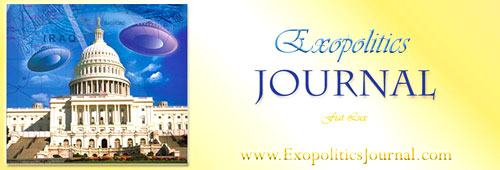
Part 1
In 1997, Col Philip Corso’s book,
The
Day After Roswell, appeared and quickly rose into the New York
Time’s best seller list with his revelations concerning his role in
a classified program to seed extraterrestrial technologies into the
private sector. Col Corso had a distinguished career as a Military
Intelligence officer, serving in senior positions during the Second
World War, the Korean war, and under the Eisenhower administration.
It was during his assignment as ‘Special Assistant’ to Lt General
Arthur Trudeau, who headed Army Research and Development, that Corso
became head of the newly established Foreign Technology Desk.
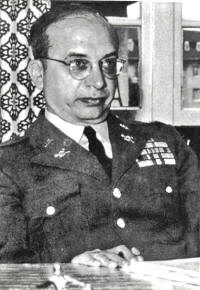
Colonel Philip Corso
During this assignment from 1961 to
1963, Corso claims to have regularly passed on to various
corporations, key ‘foreign technologies’ that were in fact,
extraterrestrial in origin. This led to breakthroughs in developing
the integrated circuit, night vision technology, fiber optics, super
tenacity fibers, lasers and other cutting edge technologies. Corso’s
book details a remarkable case; a former senior military official
emerging as a whistleblower to reveal information about classified
projects involving extraterrestrial vehicles (ETVs) or
extraterrestrial biological entities (EBEs).
Since the publication of his book, there has been much controversy
between those believing Col Corso was blowing the whistle on
classified U.S. Army activities involving seeding extraterrestrial
technologies into private industry, and those believing Corso
distorted his distinguished military service in order to assume a
historical role far beyond his actual achievements. Those most
critical of Col Corso believe that he was prone to embellishing his
service record. Most criticism has centered around a number of
public statements Corso made that appear to be inconsistent with
what can be verified in public documentation.
The most significant of Corso’s claims
that have been subjected to intense criticism are that:
1. he served
as a staff member of President Eisenhower’s National Security
Council
2. he was head of the Foreign Technology Desk at the Army
Research and Development for two years
3. he disseminated
extraterrestrial technologies to private industry
4. he
witnessed an extraterrestrial biological entity (EBE) being shipped
overland from Roswell Army Air Force Base to Wright-Patterson Air
Force base
Further criticisms include Corso’s claim
-
to having been
associated with a covert control group created to oversee the UFO
phenomenon,
MJ-12
-
to have served as commander of White Sands
Missile range
-
to have concocted an alleged
confrontation with the CIA’s director of covert operations
-
to have been promoted to
full Colonel upon retirement
I will discuss each of these criticisms in order to assess their:
-
validity
-
damage to Corso’s credibility as a whistleblower
-
discrepancies with available documentation
-
impact on his
central claim of having been part of a highly classified effort by
the U.S. Army to seed civilian industries with extraterrestrial
technologies
Corso’s credibility as a distinguished military
officer coming forward to reveal his role in such a classified
program shortly before his death, is at the center of the debate of
whether his claims are valid or not.
Col Corso’s claims placed a number of veteran researchers of the UFO
phenomenon in the uncomfortable position of dismissing the testimony
of a highly decorated officer. Documentation does put him in places
and positions where the events he claims to have witnessed could
have occurred as he described. Nevertheless, there have been some
inconsistencies found in what Col Corso claimed and what can be
documented. This has lead to intense debate between those who
consider these inconsistencies to be minor, and those believing the
inconsistencies to be sufficiently significant to warrant dismissing
Corso’s credibility and testimony entirely.
Some of Corso’s critics have gone as far as publicly dismissing Col
Corso as a fraud and ‘literary hoaxer’.1 Corso’s strongest critics
include veteran UFO researchers such Stanton Friedman, Dr Kevin
Randle and Brad Sparks who collectively have expressed their
skepticism. Many of the criticisms made against Corso cross the
Rubicon dividing objective criticism and outright debunking. This
invites speculation of the motivations of Corso’s critics who
undertake such a concerted debunking effort against a highly
decorated military whistleblower whose revelations do much to
clarify the UFO phenomenon.
Files on Col Corso gained through FOIA include his service record
and a declassified FBI report.2 To assist my evaluation I use
statements from an Italian version of Col Philip Corso’s original
notes that were published in Italy as
L’Alba di una Nuova Era [Dawn
of a New Age].3 These notes have not been published in English. They
comprise Corso’s raw beliefs on a number of UFO issues prior to his
collaboration with co-writer William Birnes in The Day After
Roswell. I examine each of the most significant criticisms raised
against Col Corso’s credibility as a whistleblower, and assess
whether Corso’s critics cross the line between objective criticism
and debunking. First I will describe the difference between
objective criticism and debunking to establish some guideline for
determining when Corso’s critics cross the Rubicon and become
debunkers.
1. Objective
Criticism versus Debunking
The UFO phenomenon has led to numerous claims by many individuals
concerning various aspects of this complex phenomenon. Analyzing
these claims requires an objective approach to the evidence not
overly influenced by the investigators own prior beliefs. I attempt
to distinguish between critics committed to an objective
investigation of the evidence, and critics who use their criticisms
to promote prior beliefs. Dr Bernard Haiasch defines skepticism,
what I will consider here to be ‘objective criticism’, as one who
practices the method of suspended judgment, engages in rational and
dispassionate reasoning as exemplified by the scientific method,
shows willingness to consider alternative explanations without
prejudice based on prior beliefs, and who seeks out evidence and
carefully scrutinizes its validity.4
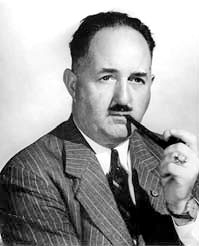
Dr Howard P.
Robertson
This definition contrasts with
‘debunking’ which is driven by an investigator’s prejudice based on
prior beliefs, and disingenuous efforts to manipulate evidence to
promote a particular conclusion. It is worth pointing out that
debunking was officially sanctioned by
the Robertson Panel as a
means of discrediting a great number of claims concerning UFOs. In
January 1953, a group of scientists chaired by Dr Howard P.
Robertson and covertly funded by the CIA, recommended that UFO
sightings be debunked due to the potential for manipulation of this
information by ‘foreign powers’ in a way that would undermine U.S.
national security. The panel recommended an “educational program” to
deter the general public from taking interest and demanding serious
investigation of UFO sightings:
The “debunking” aim would result in
reduction in public interest in “flying saucers” which today
evokes a strong psychological reaction. This education could be
accomplished by mass media such as television, motion pictures,
and popular articles.… Such a program should tend to reduce the
current gullibility of the public and consequently their
susceptibility to clever hostile propaganda.5
Consequently, a CIA sanctioned policy of
debunking UFO reports had begun. This needs to be considered when
examining the critics of UFO related claims or witnesses.
Objective criticism can be most easily distinguished from debunking
in three ways when it comes to whistleblower testimonies.
-
First, the
objective critic is willing “to consider alternative explanations”
if any inconsistencies are found in what the whistleblower claims
and what can be objectively verified. In contrast, a debunker will
automatically reject alternative explanations and will dismiss UFO
related claims if any inconsistencies are found.
-
Second, the
objective critic will scrutinize
inconsistencies and seek to judge how significant these are in
relation to the claims made by the whistleblower. In contrast, a
debunker will highlight such inconsistencies, overplaying their
significance in relation to the integrity and reliability of the
whistleblower.
-
Third, the objective critic will evaluate the pros
and cons for a whistleblower’s testimony and reach a balanced
assessment. In contrast, a debunker will focus on the cons and argue
for dismissing the testimony of the whistleblower, regardless of the
pros.
2. Was Col
Corso a (staff) member of the National Security Council?
-
In the biographical description found in
The Day after Roswell, Corso claimed that the served on “Dwight D. Eisenhower’s National
Security Council as a lieutenant colonel”
-
Elsewhere in his book,
Col Corso states that he was “on the NSC staff”6
-
He claims that in
his fifth year he personally asked President Eisenhower to be
released as a staff member of the National Security Council (NSC) so
he take up his own military command in New Mexico7
-
In his notes, he
claims that from 1953-57 he was, “a member of the National Security
Council Staff”8
-
According to Col Corso, Lt General Trudeau had sent
him to serve in the NSC under President Eisenhower
-
In his book he
says that he “was working in some of the most secret areas of
military intelligence, reviewing heavily classified information on
behalf of General Trudeau”9
There have been two major criticisms of Corso’s claims regarding his
service with the NSC. One, by Stanton Friedman and Dr Randle
criticize Corso for claiming to have served on the NSC itself,
rather than as a liaison officer on an NSC committee. The second
criticism by Brad Sparks claims that neither the Psychological
Strategy Board (PSB) or the Operations Coordinating Board (OCB) both
of which Corso served on, were part of the NSC. These critics all
conclude that Corso embellished his precise role with the NSC and
that his entire testimony therefore becomes unreliable. I deal with
each of these criticisms in turn.
Corso’s military record confirms that from 1953 to 1956, he was
given intelligence staff assignments on both the Psychological
Strategy Board (PSB) and the Operations Coordinating Board (OCB).
This is consistent with an FBI Report
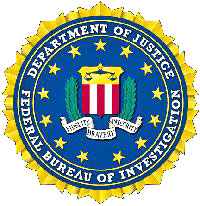 that
states that Corso was “assigned to the Operations Coordinating Board
(OCB), National Security Council.”10
It can therefore be confirmed
that Corso was assigned as an intelligence staff member to at least
two committees that performed
important psychological warfare functions within the Eisenhower
administration. Two of these committees, the PSB and OCB almost
certainly dealt with managing the public response to UFO
information. Friedman’s criticism of Corso stems from a sworn
affidavit made by Col Corso two months before his death in July
1998. In the affidavit Corso claimed that he “was a member of
President Eisenhower’s National Security Council.”11 that
states that Corso was “assigned to the Operations Coordinating Board
(OCB), National Security Council.”10
It can therefore be confirmed
that Corso was assigned as an intelligence staff member to at least
two committees that performed
important psychological warfare functions within the Eisenhower
administration. Two of these committees, the PSB and OCB almost
certainly dealt with managing the public response to UFO
information. Friedman’s criticism of Corso stems from a sworn
affidavit made by Col Corso two months before his death in July
1998. In the affidavit Corso claimed that he “was a member of
President Eisenhower’s National Security Council.”11
Friedman conducted research at the Eisenhower Library into Col Corso’s claim of having being a ‘member of the NSC’. Friedman says
that the archivist never found any evidence that Col Corso served as
a member of the NSC or attended any NSC meetings. This led him to
dismiss Corso’s claim of serving on the NSC. This is what Friedman
wrote to the author on the UFO Updates forum:
You want to believe that Corso was
on the National Security Council. If you do any checking … you
will find that the NSC’s membership is determined by Statute. He
had none of the positions that would have permitted him to be
named a member. Do you have any reason to claim that the
Eisenhower Library was lying when they said he was not a member
and did not attend any meetings? A referral letter about him
makes clear he was a liaison man... not a member.12
The problem in settling this issue is
exactly what part of the NSC did Corso claim to be a member of? What
is the cabinet level committee chaired by the President generally
known as the NSC, or one of the various interagency committees
formally and/or functionally associated with the NSC and generally
described as comprising the NSC system? At the apex of the NSC are
cabinet level officials and heads of various departments and
agencies meeting regularly to discuss national security issues.
During the Eisenhower administration, the
NSC comprised the
following:
… five statutory members: the
President, Vice President, Secretaries of State and Defense, and
Director of the Office of Defense Mobilization. Depending on the
subject under discussion, as many as a score of other senior
Cabinet members and advisers, including the Secretary of the
Treasury, the Chairman of the JCS, and the Director of Central
Intelligence, attended and participated.”13
Col Corso never claimed, in his book or
notes, to have been a member of the NSC as described above, but that
he had been on the NSC staff. This suggests that the Affidavit,
signed only two months before his death at 83 years of age,
containing the reference to him having been a member of the NSC, can
be attributed to human error. The aged and ill Corso failed to
insert the qualifying word ‘staff’ before the phrase “member of
President Eisenhower’s National Security Council.”
Concerning what part of the NSC precisely Corso served on, we learn
of the OCB association with the NSC in the following description of
how the NSC discussed its agenda and implemented its decisions
during Corso’s service:
President Eisenhower created the
Operations Coordinating Board (OCB) to follow up on all NSC
decisions. The OCB met regularly on Wednesday afternoons at the
Department of State, and was composed of the Under Secretary of
State for Political Affairs, Deputy Secretary of Defense, the
Directors of CIA, USIA, and ICA, and the Special Assistants to
the President for National Security Affairs and Security
Operations Coordination.
The OCB was the coordinating and
implementing arm of the NSC for all aspects of the
implementation of national security policy. NSC action papers
were assigned to a team from the OCB for follow-up. More than 40
interagency working groups were established with experts for
various countries and subjects. This 24-person staff of the OCB
supported these working groups in which officials from various
agencies met each other for the first time.14
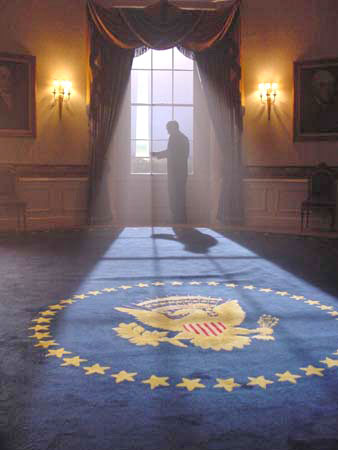
In addition to the ‘Operations
Coordinating Board’ being responsible for implementing NSC decisions
it was also mandated to report to the NSC as stipulated in the
executive order creating it.
The role of the OCB is described in official history of the NSC
which states of the OCB:
“Established as an independent agency by EO
10483, September 2, 1953, to report to the NSC on the development,
by appropriate Executive branch agencies, of operational plans for
national security policies of international import.”15
While
formally independent, the OCB and the PSB were functionally
part of
the NSC system, since it was required for them both to report to the NSC and implement NSC decisions.
Consequently, it can be concluded that Corso served in a support
staff capacity to the NSC rather than having been a member of the
NSC proper. NSC was the ultimate government entity to which the
Operations Coordination Board had to report and implement decisions
received from. This view that the OCB was functionally part of the
NSC was confirmed by the FBI report so it is true that Corso served
on the staff of the NSC. The origin of Corso’s sworn statement that
he had been a member of the NSC related to his membership in one of
the subordinate committees – the OCB and its predecessor the PSB.
Friedman has taken Corso quite literally to mean that he served on
the NSC when it’s clear from the context of his book, notes and
interviews, Corso was only referring to his membership in the
Operations Coordinating Board and other committees attached to the
NSC. This has led to Friedman concluding that Corso was making
misleading statements of serving both as a member of the NSC and
attending NSC meetings involving the President and other Cabinet
level officials.
This explains why the Eisenhower Library archivist
could find no evidence of Corso having been a member of the NSC or
having attended NSC meetings, Friedman was looking at the wrong
committee in terms of Corso’s membership and attendance. Clearly,
Corso attended meetings of the NSC Operations Coordination Board and
PSB, so Friedman’s contention that he could not find records
confirming Corso’s attendance at NSC meetings is misleading. Corso
clearly attended the PSB and OCB meetings during his four year
assignment to the Eisenhower administration and the NSC.
A similar misunderstanding of Corso’s role in the NSC is stated by
Kevin Randle in the following:
… the Eisenhower Library lacked the
records to substantiate Corso’s claim, not because those records
were incomplete, but because they never existed in the first
place. Here is another significant discrepancy that you choose
to ignore by saying maybe, possibly, perhaps, but have no
evidence to even begin a simple investigation, other than the
word of a man who has been caught several times making false
claims.16
Dr Randle is also reaching a mistaken
conclusion about Corso’s veracity as a whistleblower based on his
focus on a statement made in Corso’s affidavit and taken out of
context to infer something negative about Corso’s background. Corso
had earlier cleared such a possible confusion in his book and during
subsequent interviews. Dr Randle failed to examine the precise role
Col Corso played in the NSC and the various committees he attended,
and how the NSC is a multi-tiered institution. Col Corso was clearly
assigned to the military staff of both the PSB and OCB which were
part of the NSC system developed in the Eisenhower administration.
Another criticism is made by Brad Sparks who claims that the OCB did
not become formally part of the NSC until 1957 as a result of
Executive Order 10700 that incorporated the OCB into the NSC. Sparks
claims that Corso was embellishing his military service by claiming
that he had served in the more prestigious NSC as opposed to the
less prestigious OCB. Sparks writes:
Corso served as a staff member of an
“independent agency,” something called the OCB from Feb 24,
1954, to Oct. 20, 1956, according to his records, ‘not’ as a
staff member of the NSC…. The OCB (Operations Coordinating Board
and its predecessor the Psychological Strategy Board) was not a
part of the NSC …17
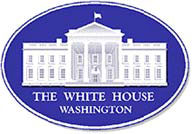 Sparks
criticism is incorrect in a number of ways. Sparks
criticism is incorrect in a number of ways.
-
First, the OCB was functionally part
of the NSC from its inception due to its reporting to and
implementing NSC decisions. The OCB’s formal incorporation into
the NSC in 1957 was done for organizational reasons, and did not
change its chief function as an interagency committee that was
part of the NSC system.
-
Second, an FBI record refers to Corso having served on the OCB NSC, thereby confirming that it
was widely understand that the OCB was part of the NSC from its
inception.
-
Third, Corso’s sworn testimony to
Congressional “Hearings Before The Select Committee On POW/MIA
Affairs,” in 1992, listed Corso as:
-
Fourth, Robert Cutler wrote an
official history for the CIA about his experience while serving
as Eisenhower’s Special Assistant for National Security Affairs.
Cutler served on the Psychological Strategy Board, the NSC
Planning Board and the Operations Coordinating Board from the
years 1951-58.
Cutler described the role of the OCB in
implementing policies approved by the NSC as follows:
Finally, the President approves,
modifies, or rejects the Council’s recommendations, transmits
those policies which he approves to the departments and agencies
responsible for planning their execution, as a rule – where
international affairs are concerned – [he] requests the NSC
Operations Coordinating Board to assist these departments and
agencies in coordinating their respective planning for action
under the approved policies.18
A significant flaw in Sparks’ argument
is that he is not consistent in his criticisms. His more recent
criticism against Corso is a reversal of his previous position that
the PSB was part of the NSC and that Corso had been appointed to the
NSC when serving in the Eisenhower administration.
In his definitive
‘expose’ of Corso’s book, written in August 1998, Sparks wrote:
“The PSB was a division of the
National Security Council (NSC), not the CIA, and it didn’t
exist in 1947. The PSB was created on April 4, 1951. Corso
should have known this from his tour of duty at the NSC in the
early 50’s.”19
The documentary and historical evidence
supports Corso’s contention that he served as a staff member of the
NSC while assigned to the OCB and PSB. Furthermore, Sparks’
criticisms of Corso fail to be consistent. Sparks has been the most
dismissive of all Corso’s critics when it comes to Corso’s
credentials and background. This suggests to this author that he is
motivated to disparage Corso regardless of the documentary evidence
supporting Corso’s claims. In the case of Friedman
and Dr Randle, both try to disparage Corso by emphasizing his
alleged claim in his Affidavit of having served on the NSC itself.
They ignore Corso’s repeated statements,
made earlier, to having been a staffer assigned to the NSC. They put
great emphasis on what is obviously an oversight on Corso’s part
that can be attributed to his deteriorating health. They ignore
previous interviews and writing which consistently claim that Corso
had served on the NSC staff. This suggests both Friedman and
Randle are intentionally posturing to disparage the significance of Corso’s
testimony by over emphasizing inconsistencies in his testimony. The
failure of Randle, Sparks and Friedman to consider alternative
explanations for inconsistencies in Corso’s testimony; their
overblown emphasis on the significance of the inconsistencies; and
their lack of effort to reach a balanced conclusion over the pros
and cons of Corso’s testimony, suggests they have crossed the
Rubicon from objective criticism into debunking.
3. Did
Col Corso officially work with Majestic-12?
According to Kevin Randle, Corso had made some public statements of
having been officially associated with the secretive Majestic 12
(MJ-12) Group created to manage the UFO phenomenon.20
Dr Randle
concludes that the absence of documentary support for such claim
suggests that Corso was prone to embellishing his service
background, therefore his testimony is unreliable. Randle
dismissively writes:
“I find the references to his
personal involvement in MJ-12 to be the smoking gun about the
credibility of the book.”21
Documentary evidence for a possible
official relationship between Corso and MJ-12 is found in his
official military records. Col Corso’s records point out that he
served on the Psychological Strategy Board (PSB) in 1953; and also
on its successor
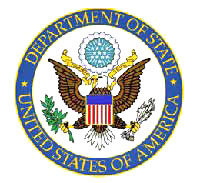 the
Operations Coordinating Board (OCB) from 1953-56. During Corso’s
service, these committees were both physically located at the
Department of State, and headed by the Deputy Secretary of State. Corso describes his role in the PSB/OCB and the UFO information he
had access to as follows: the
Operations Coordinating Board (OCB) from 1953-56. During Corso’s
service, these committees were both physically located at the
Department of State, and headed by the Deputy Secretary of State. Corso describes his role in the PSB/OCB and the UFO information he
had access to as follows:
During my military career at one
time or another, I counted nine clearances above “Top Secret,”
granted to me. These included cryptographic, satellite, code and
intercept, special operational clearances and the “Eyes Only”
category of special White House (NSC) matters.
They made available to me all
matters within the government which included “UFO” information.
My colleagues of the NSC staff did not know of my special
clearances. Only C.D. Jackson, my superior, and the President’s
special assistant and President Eisenhower knew of the
clearances.22
Corso is here claiming that while serving as a staff member of
Eisenhower’s NSC, he was given access to ‘UFO’ information. Claims
attributed to Corso by Dr Randle that Corso served with Majestic-12
may be explained from the precise role played by the OCB.
The OCB
was the successor to the Psychological Strategy Board (PSB) that had
been initially created by Gordon Gray, a former Secretary of the
Army, in 1951. According to Stanton Friedman, Gray was a member of
the original Majestic 12 Group mentioned in the
Eisenhower Briefing
Document. 23
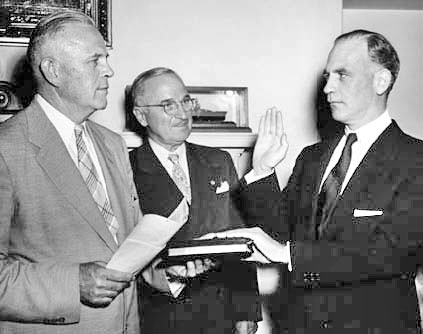
Gordon Gray (right)
being administered the oath as the first Director of the new
Psychological Strategy Board
while President Harry
S. Truman (center) witnesses the event.
Given the high level of security
attached to all MJ-12 activities, it can be assumed that the PSB had
been created to perform certain functions for the secretive MJ-12
Group. A still to be confirmed ‘Majestic’ document, allegedly leaked
by government insiders, declares that the Psychological Strategy
Board was created by MJ-12 to develop policies on the UFO
phenomenon.24
The PSB was created “under the NSC to coordinate government-wide
psychological warfare strategy.” 25
Both the PSB and the OCB were
based on developing psychological warfare strategies.
Given the role recommended by the 1953 Robertson Panel to debunk UFO
sightings and Gordon Gray’s original role in setting up the PSB, it
can be concluded that one of the functions of the OCB was,
to develop
appropriate psychological warfare strategies to deal with the public
response to the UFO phenomenon.
Corso was most likely referring to
his service on the PSB/OCB as the basis for his later claims to have
been formally associated with MJ-12.
Corso’s background as a military
intelligence officer would have equipped him well to serve on a
committee (PSB/OCB) performing psychological warfare functions
authorized by MJ-12 to manipulate the public response to the UFO
phenomenon. The criticism against Corso that he embellished
his
service record in claiming to have been associated with MJ-12 is
therefore not supported by the documentary evidence. The lack of
effort of Randle to find a plausible explanation for Corso’s claim
regarding being professionally associated with MJ-12 suggests that
once again he has crossed the Rubicon from objective criticism into
debunking.
4. Did
Col Corso head the Foreign Technology desk at Army Research &
Development for two years?
Another criticism of Col Corso is Dr Randle’s and Stanton Friedman’s
contention that Corso served only ninety days as head of Foreign
Technology desk under Lt General Trudeau, and that he was
embellishing his service record by claiming that he “for two
incredible years” was “heading up the Foreign Technology desk in the
Army Research and Development".26
Col Corso’s military record
confirms that he served as Chief of the Foreign Technology Division
from 18 April 1962 to 18 July 1962.
Prior to this period he was assigned as
a Staff Officer in the Plans Division from May 5 to June 25, 1961,
and then as staff officer in the Foreign Technology Division from 26
June 1961 to April 1962. Furthermore, from 18 July, 1962 to his
retirement on 1 March, 1963, he was once again assigned as a Staff
Officer in the Plans Division of Army R & D. It is this entire
period of serving in Army R & D that Corso describes as the “two
incredible years” of heading the Foreign Technology Desk.
In Corso’s notes, he declares that upon his return from Germany in
1960 where he was Inspector General for the U.S.
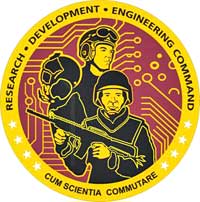 Seventh
Army, he became “Special Assistant to the Chief of Army Research and
Development, Lt Gen. Arthur G. Trudeau”.27
He claimed that in “Army R& D, I had the title of
Chief of Foreign Technology Division…. I was always the team chief
and made all decisions.”28
Corso’s claim
is supported by his close relationship with Trudeau and his former
senior positions as battalion commander at White Sands Missile Range
and Inspector General of the 7th Army. Seventh
Army, he became “Special Assistant to the Chief of Army Research and
Development, Lt Gen. Arthur G. Trudeau”.27
He claimed that in “Army R& D, I had the title of
Chief of Foreign Technology Division…. I was always the team chief
and made all decisions.”28
Corso’s claim
is supported by his close relationship with Trudeau and his former
senior positions as battalion commander at White Sands Missile Range
and Inspector General of the 7th Army.
Independent corroboration that Corso served as head of the FTD
despite his military record confirming this only for a three month
period was established by Col John Alexander in his own private
research of Corso’s background.29
Col Alexander discovered in his
research that Col Corso had another officer nominally above him in
the organizational hierarchy, but Corso was known to be effectively
in charge of the Foreign Technology desk created under General
Trudeau. This was confirmed to Col Alexander by senior military
officials aware of Corso’s work with Gen Trudeau.
The FTD was a very small unit possibly
comprising just Corso himself. Col Alexander discovered that the FTD
was created when Corso started at Army Research and Development, and
the office was abolished when he retired, along with Gen Trudeau.
This confirms Corso’s claim that the FTD was created for him by
General Trudeau after his arrival at the Pentagon and required Corso’s various security clearances.30
This supports Corso’s
testimony that he was in charge of the Foreign Technology desk over
a two year period 1961-63, and not solely the ninety days confirmed
in his military record. The great emphasis placed in this
discrepancy between what Corso claimed and what his record
establishes, once again shows how Corso’s critics fail to identify
plausible explanations for this inconsistency.
A number of plausible explanations exist
for this discrepancy without undermining Corso’s central claim of
heading the FTD. Consequently, the overblown emphasis on this
inconsistency between Corso’s claims and his records, once again
reveal that critics such as Dr Randle and Friedman cross the Rubicon
between objective criticism and debunking.
5. Did
Col Corso Play a role in disseminating extraterrestrial technologies
into private industry?
There has been much criticism of Corso’s claims of seeding
extraterrestrial technologies into civilian industries. The civilian
technologies spawned by this covert seeding program include:
-
Fiber
Optics
-
Image Intensifiers
-
Super Tenacity Fibers
-
Lasers
-
Integrated Circuits
-
Irradiated Food
Critics such as Stanton Friedman argue that:
Corso seems to be taking credit for
the single handed introduction of a whole host of new
technologies into American industry. All this is supposedly
derived from the filing cabinet of Roswell wreckage over which
he was given control by General Trudeau…. He is definitely NOT a
scientist, but the implication is that in less than 3 years he
could change the world’s technology… Not very likely in my
opinion.31
Similarly, Brad Sparks is very critical
of Corso’s claims regarding his seeding extraterrestrial
technologies and concludes:
“there really is no need to go into the
rest of his confabulations about his heroic role in getting U.S.
industry to “reverse engineer” microchips, fiber optics, lasers,
Kevlar, etc., from his make-believe Roswell spacecraft.”32
It needs to be pointed out that Corso consistently laid credit for
the covert program to seed civilian industries with extraterrestrial
technologies to his superior, Lt General Arthur Trudeau. Corso wrote
that from the period 1947-58 that
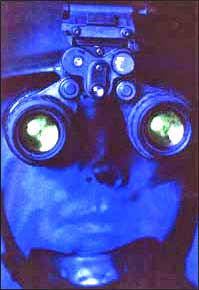 “military
R & D was greatly disorganized” and that it was under his superior,
Lt General Arthur Trudeau, that the “Golden Age of R & D (1958-1963
) blossomed.33 “military
R & D was greatly disorganized” and that it was under his superior,
Lt General Arthur Trudeau, that the “Golden Age of R & D (1958-1963
) blossomed.33
Due to competing government agencies, Corso claimed that “R & D
data, stemming from areas ‘out of this world’ had to be carefully
hidden and the information kept among a select few.”34
As a former
intelligence officer who served with Gen Trudeau, former head of the
Army’s Military Intelligence (G-2), Corso was entrusted with
extraterrestrial technologies to seed
into civilian industries. He likely performed this covert function
with the same single minded focus that exemplified his highly
distinguished military career.
Nevertheless, Corso consistently laid
the chief credit for the covert extraterrestrial technology seeding
program with Gen Trudeau, and not himself. Nevertheless, he is
assailed by critics for exemplifying hubris. For example, Brad
Sparks claims in his ‘expose’:
“Corso just can’t resist putting
himself at the center stage of great events of history, courted by
the big names such as Robert Kennedy and his “old friend” J. Edgar
Hoover (Corso’s “other book” is called “I Walked With Giants”), and
he is ever the powerful hero.”35
Corso’s critics have attempted to lay the charge of hubris on
Corso
without appreciating the implications of the unique circumstances
that had placed in such a sensitive role. As the trusted personal
assistant to the head of the Army R & D program, Corso was in the
precise position to play his part in a covert program that could
have had an enormous effect on human society. That is a statement of
fact supported by documentation, rather than hubris which is based
on the conjecture of critics.
Consequently, the ad hominem attacks
on Corso’s reflections on the significance of his historical role in
a secret Army program to seed civilian industries with
extraterrestrial technologies are at best a distraction. At worst,
such ad hominem attacks are more evidence of Corso’s critics
crossing the Rubicon between objective criticism and debunking .
[To be continued in Part 2.]
Endnotes
-
See Stanton Friedman,
http://www.virtuallystrange.net/ufo/updates/2005/may/m19-006.shtml
Dr Kevin Randle,
http://www.virtuallystrange.net/ufo/updates/2005/may/m18-006.shtml;
and Brad Sparks,
http://www.virtuallystrange.net/ufo/updates/2005/aug/m04-007.shtml
-
See
http://www.cufon.org/cufon/corso_da66.htm
* I thank Paola Harris and Jan Aldrich for forwarding FOIA
information available on Dr Phillip Corso which assisted me
greatly in assessing the validity of Corso’s testimony and
criticisms made against him.
-
Philip Corso, L’Alba di una Nuova Era: I Segreti Alieni
Nascosti dal Pentagono, tr. Maurizio Baiata (Pendragon, 2003). I
thank Paola Harris for generously giving me a copy of Maurizio
Baiata’s Italian version of Corso’s original notes.
-
Cited online at:
http://www.ufoskeptic.org/
-
Cited from online version of
Robertson Panel
-
The Day After Roswell, 62.
-
The Day After Roswell, 38.
-
L’Alba Di Una Nuova Era, 127.
-
The Day After Roswell, 2.
-
See:
http://foia.fbi.gov/corso_philip_j/corso_philip_j_part01.pdf
-
See:
http://www.ufocom.org/UfocomS/CorsoAffidavit.htm
-
See:
http://www.virtuallystrange.net/ufo/updates/2005/may/m12-001.shtml
-
See:
http://www.fas.org/irp/offdocs/NSChistory.htm#Eisenhower
-
Cited online at:
http://www.fas.org/irp/offdocs/NSChistory.htm#Eisenhower
-
Cited online at:
http://www.archives.gov/research/guide-fed-records/groups/273.html
-
Cited online at:
http://www.virtuallystrange.net/ufo/updates/2005/may/m16-001.shtml
-
Cited online at:
http://groups.yahoo.com/group/exopolitics/message/220
-
Cited online at:
http://www.cia.gov/csi/kent_csi/docs/v03i4a05p_0003.htm
-
Cited online at:
http://www.virtuallystrange.net/ufo/updates/1998/aug/m11-001.shtml
-
See:
http://www.virtuallystrange.net/ufo/updates/1997/jan/m17-016.shtml
&
http://www.virtuallystrange.net/ufo/updates/1997/feb/m25-007.shtml
-
See:
http://www.virtuallystrange.net/ufo/updates/1997/jan/m17-016.shtml
-
L’Alba Di Una Nuova Era, 31.
-
See Stanton Friedman, Top Secret/Majic (2005) 56-85.
-
“Majestic Twelve Project: 1st Annual Report,” The Majestic
Documents, ed., Robert Woods, 110
-
Cited in Foreign Relations of the United States, 1964-1968,
vol. XII, Western Europe, pp. XXXI-XXXV, April 16, 2001.
Available online at:
http://www.fas.org/sgp/advisory/state/covert.html
-
The Day After Roswell, 1.
For Randle’s criticism go to:
http://www.virtuallystrange.net/ufo/updates/2005/dec/m13-004.shtml.
For Friedman’s criticism go to:
http://www.geocities.com/Area51/Lair/7676/stanlog.htm
-
L’Alba Di Una Nuova Era, 29.
-
L’Alba Di Una Nuova Era, 31.
-
Private email from Col Alexander on May 20, 2005.
-
L’Alba Di Una Nuova Era, 44.
-
Cited online at:
http://www.v-j-enterprises.com/sfcorso.html
-
Cited online at:
http://www.virtuallystrange.net/ufo/updates/1998/aug/m11-001.shtml
-
L’Alba Di Una Nuova Era, 15.
-
L’Alba Di Una Nuova Era, 16.
-
Cited online at:
http://www.virtuallystrange.net/ufo/updates/1998/aug/m11-001.shtml
|




 that
states that Corso was “assigned to the Operations Coordinating Board
(OCB), National Security Council.”10
It can therefore be confirmed
that Corso was assigned as an intelligence staff member to at least
two committees that performed
important psychological warfare functions within the Eisenhower
administration. Two of these committees, the PSB and OCB almost
certainly dealt with managing the public response to UFO
information. Friedman’s criticism of Corso stems from a sworn
affidavit made by Col Corso two months before his death in July
1998. In the affidavit Corso claimed that he “was a member of
President Eisenhower’s National Security Council.”11
that
states that Corso was “assigned to the Operations Coordinating Board
(OCB), National Security Council.”10
It can therefore be confirmed
that Corso was assigned as an intelligence staff member to at least
two committees that performed
important psychological warfare functions within the Eisenhower
administration. Two of these committees, the PSB and OCB almost
certainly dealt with managing the public response to UFO
information. Friedman’s criticism of Corso stems from a sworn
affidavit made by Col Corso two months before his death in July
1998. In the affidavit Corso claimed that he “was a member of
President Eisenhower’s National Security Council.”11
 Sparks
criticism is incorrect in a number of ways.
Sparks
criticism is incorrect in a number of ways.  the
Operations Coordinating Board (OCB) from 1953-56. During Corso’s
service, these committees were both physically located at the
Department of State, and headed by the Deputy Secretary of State. Corso describes his role in the PSB/OCB and the UFO information he
had access to as follows:
the
Operations Coordinating Board (OCB) from 1953-56. During Corso’s
service, these committees were both physically located at the
Department of State, and headed by the Deputy Secretary of State. Corso describes his role in the PSB/OCB and the UFO information he
had access to as follows: 
 Seventh
Army, he became “Special Assistant to the Chief of Army Research and
Development, Lt Gen. Arthur G. Trudeau”.27
He claimed that in “Army R& D, I had the title of
Chief of Foreign Technology Division…. I was always the team chief
and made all decisions.”28
Corso’s claim
is supported by his close relationship with Trudeau and his former
senior positions as battalion commander at White Sands Missile Range
and Inspector General of the 7th Army.
Seventh
Army, he became “Special Assistant to the Chief of Army Research and
Development, Lt Gen. Arthur G. Trudeau”.27
He claimed that in “Army R& D, I had the title of
Chief of Foreign Technology Division…. I was always the team chief
and made all decisions.”28
Corso’s claim
is supported by his close relationship with Trudeau and his former
senior positions as battalion commander at White Sands Missile Range
and Inspector General of the 7th Army.  “military
R & D was greatly disorganized” and that it was under his superior,
Lt General Arthur Trudeau, that the “Golden Age of R & D (1958-1963
) blossomed.33
“military
R & D was greatly disorganized” and that it was under his superior,
Lt General Arthur Trudeau, that the “Golden Age of R & D (1958-1963
) blossomed.33